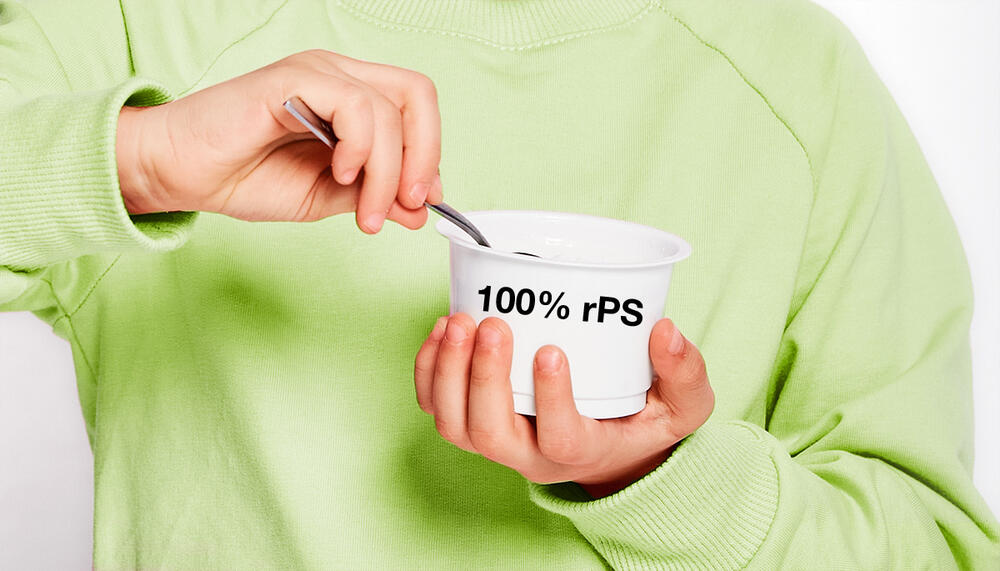
Styrenics Circular Solutions (SCS), the value chain initiative to realise the circular economy for styrenic polymers, has filed its second application for EU authorisation of mechanically recycled polystyrene (rPS) as food contact material. SCS has now already two submissions to be assessed by the European Food Safety Authority (EFSA). Both cover the same multiple end-consumer applications, including yoghurt pots, hot and cold beverage containers and food trays. However, they are based on two different super-cleaning technologies as part of PET-like food contact mechanical recycling processes. The rPS content in end-consumer applications can range up to 100%.
The scientific dossier by Fraunhofer IVV for this second application follows several successful challenge tests performed with the super-cleaning technology of plastic recycling machine manufacturer Gneuss. The process consistently delivered a recycled polymer with excellent purity, based on post-consumer food packaging waste. The results were delivered by Gneuss’ Multi Rotation System (MRS) jump extrusion process that enables highly efficient super-cleaning based on high vacuum, high surface and melt temperature. Fraunhofer IVV confirmed the excellent cleaning efficiency demonstrated in the challenge tests. This technology already has an established track record in Japan, where Gneuss have provided FDA approved super-cleaning for food contact mechanical recycling of food trays since 2017.
Jens Kathmann, Secretary-General of SCS, commented: “The submission of this second application for a different super-cleaning technology underlines our confidence in the safety of rPS as food contact material. The expansion of the technological base is important to give investors in food grade mechanical recycling facilities a choice. Now we already have two proven super-cleaning technologies and we are convinced that several other suitable technologies will follow. This is fully in line with the broader SCS strategy to embrace multiple technologies to accelerate achieving the circular economy for styrenics and our contribution to the EU recycling targets. We look forward to positive opinions of EFSA, both on our earlier submission and eventually this application.”
Constanze Hirschhaeuser, Vice President Quality, HSE & Sustainability of PACCOR Packaging GmbH, one of SCS’ converter members, said: “This second scientific dossier by Fraunhofer IVV and application for EU authorisation is very welcome news by the PS value chain, confirming once again that rPS meets the strict purity requirements for food contact materials. We firmly believe that recycled PS is a drop-in solution, behaving exactly like virgin material in production and it retains all of the excellent qualities of PS, with an added circular credential. The future availability of rPS will allow us to offer a range of tailored solutions to best suit our customers.”




